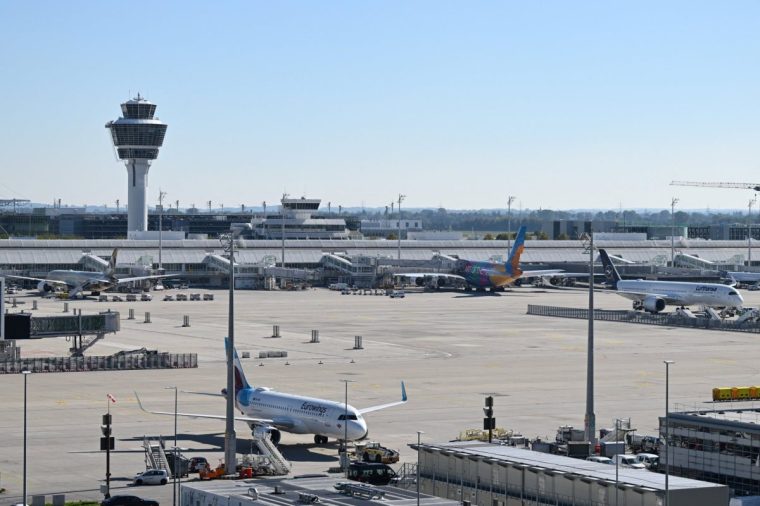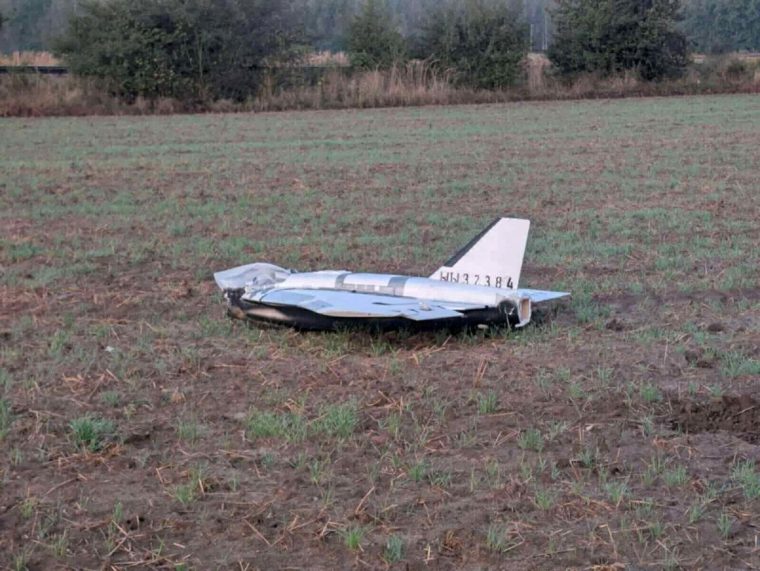Drone incidents across Europe have ramped up in recent weeks, leaving many on edge and pointing the finger at Russia
Germany‘s Munich Airport was forced to close temporarily overnight on Thursday after several drones were spotted flying above it. At least 17 flights were grounded and the airport was forced to divert a further 15 passenger jets to nearby cities.
Drones were also seen flying over Belgium’s military base at Elsenborn, close to the German border, prompting an investigation by the country’s defence ministry.
The incidents came after drone sightings caused significant disruptions across Europe in recent weeks, including the shut down of airports in Denmark and Norway.
The sightings have led some European leaders to speculate that Moscow could be behind them, in light of Russian warplanes and drones breaching the airspace of European countries, including Estonia and Poland last month.
What happened at Munich Airport?

Air traffic control restricted flights at the airport shortly after 10pm local time. The disruption affecting almost 3,000 passengers and 15 arriving flights were diverted to three other airports in Germany and one in Austria.
Police attempted to track the drones using helicopters but couldn’t find any trace of them, before flights into and out of the airport resumed at 5am.
Stefan Bayer, a spokesperson for Germany’s federal police at Munich Airport, said it wasn’t immediately clear how many drones might have been involved. He said police, airline employees and “regular people around the airport” were among those who reported the drone sightings.
Munich is currently hosting the annual Oktoberfest festival, which attracts more than six million people a year. The annual beer festival was also closed for half a day on Wednesday after a bomb scare.
Mysterious drone sightings
Drone sightings across Europe have continued in recent weeks, leaving many countries on edge.
On 22 September, drones were spotted over Copenhagen Airport, resulting in flights being grounded. The same day, authorities in Norway were forced to halt flights at Oslo Airport for three hours.
Between 24 and 26 September drones were spotted near Denmark’s civilian-military airport Aalborg and three smaller airfields in Esbjerg, Sonderborg and Skrydstrup.
This came after Russian drones were shot down over Polish airspace last month. European authorities have expressed concerns that Russia could be behind some of the latest incidents.

Is Russia responsible?
Katja Bego, a senior research fellow at Chatham House’s International Security Programme, said the recent drone and jet incursions suggests Russia is engaged in a “hybrid war”, which it is now ramping up.
She said the disruption on Europe’s critical infrastructure appears to be “escalating” and Russia is now using a variety of methods.
“We have the recent incursions in Estonia and other countries by Russian jets,” she said. “Then we have seen drones, this is no accident. These are a kind of escalation using a bunch of different methods. It looks like hybrid warfare. We have a packet of stuff that looks like a serious campaign.”
Bego said countries cannot protect everywhere, “but for critical infrastructure such as airports and power plants that should be in place… we have had these recent incidents, we need to look at this with urgency”.
“You cannot have airports open to this sort of thing. There is a lot of momentum now to take action and start thinking about this, so perhaps positives will come out of this.”
How are European leaders reacting?
The recent drone incidents prompted a leaders’ summit in Copenhagen this week. On Wednesday, European Union leaders backed plans to bolster the bloc’s defences against Russian drones.
It came after European Commission President Ursula von der Leyen last month called for countries to create a network of sensors and weapons to detect, track and neutralise unmanned aircraft and protect Europe’s eastern flank.
Discussing the “drone wall”, Von der Leyen argued that airspace violations “are part of hybrid war tactics” and she demanded a “strong and determined reaction and answer from Europe”.
“We must provide the strongest of deterrence at scale and at speed,” she said.
Bego said she supports the idea of a “drone wall”, but stressed that countries have to ensure they utilise lots of different counter drone technology in order to make sure they are protected.
“You would have to make sure that technology can prepare for different scenarios,” she said. “Such as being able to detect smaller drones as they can sometimes not be detected by radar.”
